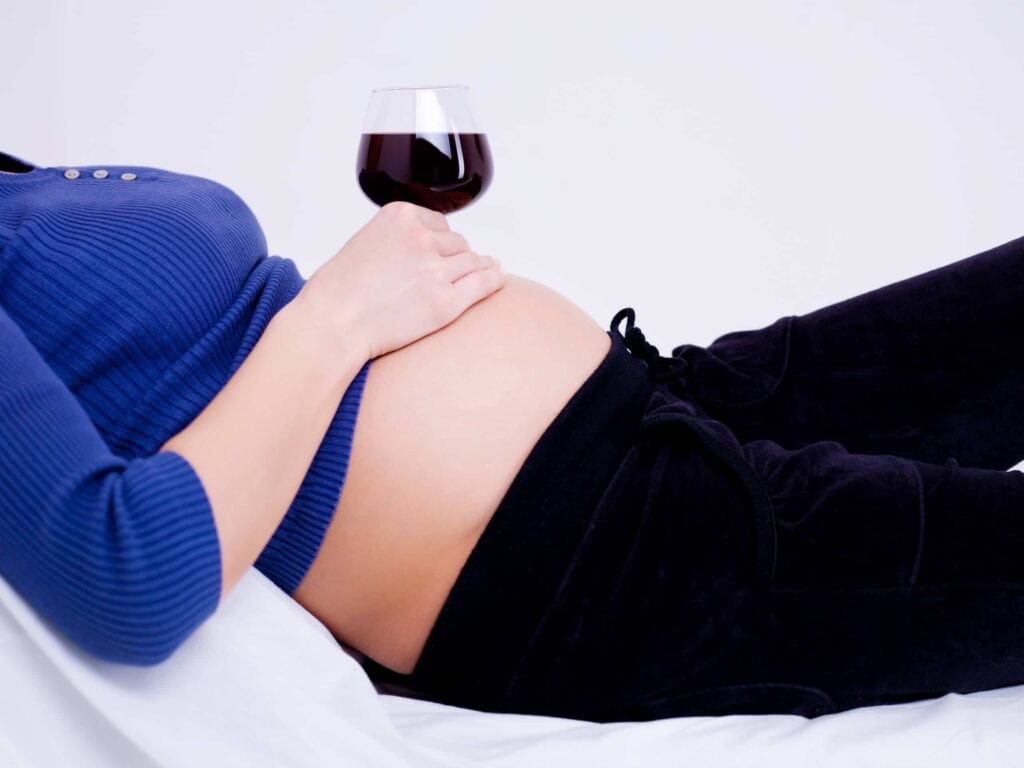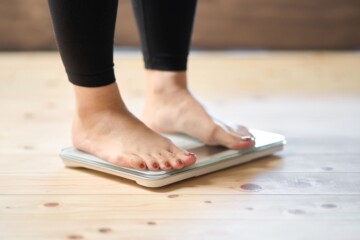Fertility can be a complicated subject. There are so many factors that can affect both women’s and men’s fertility — some are beyond a couple’s control. However there are lifestyle choices which contribute to fertility and infertility. One of them is drinking alcohol when trying to conceive — this is a factor which is very much ‘within’ or ‘under’ your control.
Does drinking alcohol affect fertility?
There is clear scientific evidence which shows that drinking alcohol has a significant impact on fertility and conception. (1) Any amount of alcohol can pose a health risk to an unborn child, and this doesn’t just apply during pregnancy. For this reason, it’s recommended that both women and men should avoid consuming alcohol altogether when trying to conceive, in order to fully remove a factor that could have serious implications either at this stage or further down the line.
Can you drink alcohol when trying to conceive?
Alcohol affects everybody differently, but there is no question that alcohol has a negative impact on efforts to conceive, and poses a significant danger to a foetus from the moment of conception onwards.(2) For this reason it is advisable to avoid drinking alcohol in any quantity if you are trying to conceive, in order to increase the likelihood of a successful and healthy conception.
Does alcohol affect conception and implantation?
Yes, alcohol affects conception and implantation and increases the risk of early pregnancy loss. There are several reasons for this:
- For women, heavy drinking can cause changes in ovulation, cycle regulation and ovarian reserve. It can also prevent proper implantation in the uterus, resulting in an increased rate of early loss of the pregnancy or resorption — even before a woman realises she is pregnant.
- For men, heavy drinking has shown to decrease the hormones needed for sperm production.
Research varies when it comes to how much is too much when trying to conceive. But when it comes to drinking while going through IVF treatment, the thinking is unanimous — all agree that it is best not to drink alcohol at all for the best chance of conceiving.
Does alcohol affect IVF treatment?
One study found that women going through IVF treatment who drank one or more drinks a day had more than twice the risk of miscarriage. The increased risk was higher if the drinking happened the week before the IVF treatment. Men who drank just one serving of alcohol a day from a week or a month before IVF treatment saw an increased risk of miscarriage of 38 times.
The negative impact that alcohol has on conception and pregnancy means that the NHS strongly advises against drinking alcohol if you are pregnant or you are trying to get pregnant. The safest approach to trying for a baby is not to drink alcohol at all.
Can alcohol harm a fertilised egg?
Yes, damage can begin immediately after conception, causing harm to a fertilised egg and even killing the just-fertilised egg. (3) After conception, the developing embryo anchors to the wall of the mother’s uterus.
Just three weeks after fertilisation, alcohol-induced birth defects can affect the developing embryo. Not only can this affect the development of the brain, heart and central nervous system, but also the development of the facial features (as seen in foetal alcohol syndrome).

How can I increase my chances of getting pregnant?
✔ Make lifestyle changes
Unless there are other underlying causes, you are more likely to get pregnant if both the man and the woman are in good health. It is important for both to:
- Get regular exercise
- Eat a balanced diet
- Stop smoking
- Ideally abstain from drinking alcohol
It is also beneficial for you both to be a healthy weight as being underweight or overweight can also negatively affect your chances of getting pregnant. For the woman, being underweight or overweight could cause irregular periods or even cause periods to stop completely, while an unhealthy weight can lower a man’s sperm count.
So what is a healthy weight? A healthy weight is considered to be when your body mass index (BMI) is between 20 and 25. So women whose BMI is under 19 or over 30 may have trouble conceiving. If a man’s BMI is more than 30 his fertility could be lower than normal.
✔ Take a dietary supplement
There is a large body of evidence supporting the fact that diet plays an important role in supporting men’s and women’s fertility. However, it is rare that we all manage to get the specific nutrients that we need when we lead fast-paced and busy lives. Taking a dietary supplement as well as having a healthy diet will provide couples with the best chance of conceiving.
Unfortunately, many fertility supplements contain strong antioxidants which can upset your metabolic balance, actually damaging the quality of the eggs and sperm.
It is crucial that you take a supplement that helps your body to maintain its natural metabolic balance. This provides:
- Natural antioxidant defence — proven to help prevent both DNA fragmentation and DNA decondensation.
- Energy support — your body needs lots of energy to develop healthy eggs and sperm.
- Optimised gene expression, also known as Epigenetics — enabling the cells to methylate genes for optimal egg and sperm cells and development of the embryo.
Start your journey with Impryl today
The fertility supplement for both men and women
✔ Find out the best time to get pregnant
Ovulation (when the ovaries release the egg) occurs about 14 days after the first day of your last period and you are more likely to get pregnant within a day or so of ovulation.
To get pregnant, the sperm must fertilise the eggs which live for about 12 to 24 hours after ovulation. Sperm can live for up to 7 days within the woman’s body.









